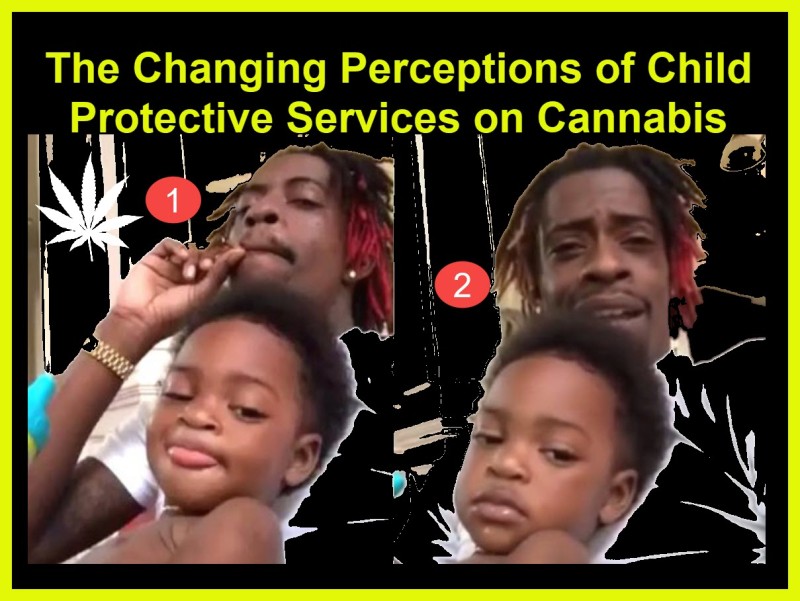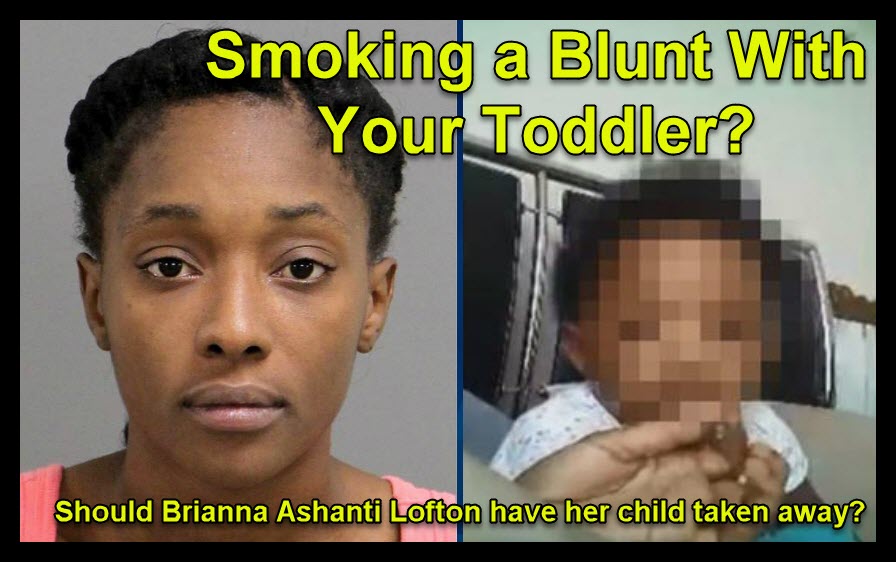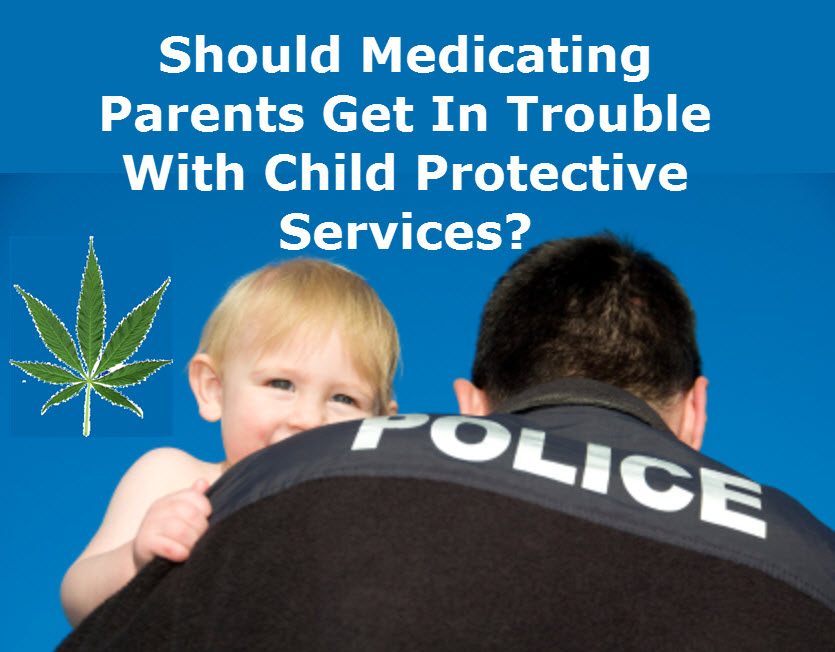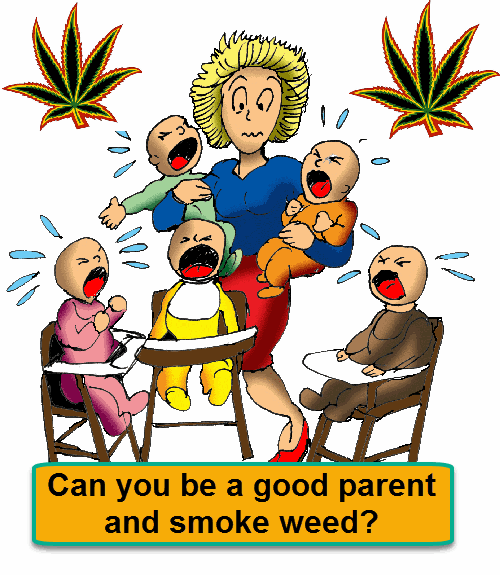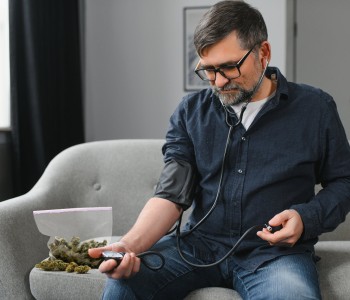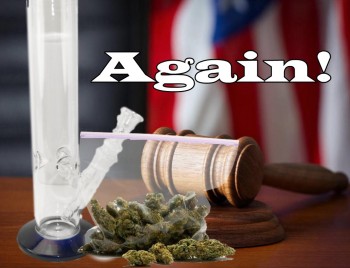The Changing Perceptions of Child Protective Services on Cannabis
Cannabis, Kids, and Child Protective Services - The Changing World from CannabisNet on Vimeo.
Even if cannabis is rapidly being legalized as a medical and recreational drug, there is still a stigma towards parents who use cannabis.
There are still cases of children forcefully getting separated from their parents because of failed drug tests.
Recently, writer Larissa MacFarquhar wrote a piece on the New Yorker about Anne Mendenhall. Mendenhall is part of the Bronx Defenders, a New York public service for low income families. She says that in New York, Child Protective Services have a double standard when dealing with low-income families, and that they work to separate poor children from their parents if their parents use cannabis.
Mendenhall had a discussion with an ACS (Child Protective Services) lawyer in New York, as reported in the New Yorker: “Never say ‘marijuana’ again in this courthouse until you call the police on your friend from college who dares to smoke it when he has children at home,” she fumes. “One guy said to me, ‘My own friends’ and family’s marijuana use is neither here nor there.’ And I said, ‘How can that be? How can it be? If you really believe in what you’re saying.’”
Clearly, low income people face a higher risk of getting separated from their children if they use cannabis.
But low income or not, this bigotry has to end.
Recently in Texas, a family went to court for using cannabis as treatment for their 18-year-old daughter, Kara Zartler, who suffers from severe autism. This case may be different from others who may have to deal with Child Protective Services, since the child in question isn’t a minor.
The judge ruled that both Zartler’s parents, Mark and Christy, are allowed to stay her legal guardians and give cannabis to her. “Even if there’s some kind of intellectual disability when the child turns 18, they’re still an adult with the ability to make their own decisions until the court makes a finding that they’re incapacitated,” says Ellen Williamson, Zartler’s court-appointed attorney. “My role isn’t to actively contest the application for guardianship, but to make the applicants prove they’re qualified. You’re asking the court to take away my client’s legal rights; she doesn’t have the ability to consent to that.”
Even if Zartler’s cannabis use remains legally vague, since autism isn’t one of the approved conditions based on the Texas medical cannabis program, using cannabis as her form of treatment wasn’t sufficient to prohibit her parents from being her custodians. The Zartlers already tried all kinds of anti-psychotic drugs, many of which made Kara catatonic. “We could strip away her personality, but it didn’t stop the hitting,” says Mark. Around 7 years ago, a neighbor recommended that they try cannabis. They initially didn’t take the idea seriously, but Mark accepted a space brownie from the neighbor. They gave it to Kara before embarking on a road trip, and it calmed her for 5 whole hours, instead of hitting herself and shouting.
After this incident, the parents decided that cannabis was the only medicine that would work for Kara. It didn’t prevent her sense of humor and personality from shining through. Although their doctors told them that it was good they found something that finally works, they still wouldn’t recommend going against the law.
As part of his claims supporting his daughter’s need for medical cannabis, Mark Zartler uploaded a video as proof of her self-harming behavior due to her condition. In the video, Kara is shown screaming and hitting herself. It also shows how after Mark gives her vaporized cannabis, she clearly calms down. “It stabilizes her mood within minutes. Her good mood usually lasts all day,” writes Mark in the video. The video went viral, prompting Child Protective Services to get in touch with the family, saying there is “reason to believe” that Kara was physically abused. State law dictates that giving cannabis, an illegal drug, to a minor, is a form of physical abuse. “We’re not criminals, and it makes me feel uneasy that the medication that helps her the best, that has the safest profile medically, is illegal. And so it’s just hard,” Christy told a Dallas News video.
The Zartlers invested a lot of time and energy petitioning for the case. They traveled to Austin, went to the Capitol, showed lawmakers the video, asking them to support a cannabis bill for patients with autism. Even if lawmakers and others showed sympathy, they still didn’t take action on the issue.
Christy, a nurse practitioner, said during the hearing: “Kara is a severe case of autism with self-injurious behavior.” She added, “She punches her head pretty significantly and she has caused brain damage. It prevents her from causing further head trauma and brain damage,” referring to cannabis.
However, Judge Brenda Hull Thompson didn’t think there was a problem and not long after she granted Mark and Christy legal guardianship.
If the judge ruled that Mark was “unsuitable” to be Kara’s guardian, it would affect the family significantly. It would mean that only Christy could be Kara’s guardian, and if anything else happened to Kara, she would be ward of the state. And to prevent this from happening, the entire family would have to move to a state where cannabis is legal, such as Colorado. Additionally, they both have elderly parents that also need taking care of, so as much as possible they don’t want to leave Texas which is home for all of them.
Hearings for guardianship issues typically last around 10 minutes when a disabled child turns 18. Guardians, or parents, need to have solid evidence that the child in question can’t live independently, and that they are qualified to help manage the person’s life. Anyone under guardianship loses their right to make medical decisions, marry, and vote. Christy and Mark were warned by their lawyers that there was a possibility they could lose the case.
“The courts are vested with a ton of discretion, what they’re looking for is murky,” family law attorney Carolyn Witkus says. The courts accepted the claim of the Zartler parents that cannabis was being used as a “last resort”. “I think the line we see a lot of is whether there’s a legitimate therapeutic need; is there some kind of expert support; is the cannabis use consistent with the therapeutic need; are they just using THC and CBD, or just CBD?”
It makes sense that these questions should be considered to both children and parents who use cannabis, but may be questioned by Child Protective Services.
In Colorado, cannabis is treated just like alcohol. When new mothers undergo drug testing in the delivery room, they don’t just look for traces of THC in the blood but they also test for alcohol, Witkus says. “I haven’t seen anybody actually lose their children on account of using cannabis,” she adds, particularly because in Colorado they feel strongly about parents being united with their children.
However, how Child Protective Services deals with either parent or child when it comes to cannabis use is ambiguous at best. The rules also vary from state to state. Recently, Americans for Safe Access released a report grading each states’ cannabis program. The “parental rights” category was worth 10 points. Texas was given an F for all points, and 0 for parental rights; Colorado received an overall B-grade but despite being a pioneer in cannabis use they still received 0 points when it came to parental protection. But California was able to get a 10-point score for parental rights.
“I was following that case in Texas, and from our perspective it’s a step in the right direction,” says Americans for Safe Access legislative counsel David Mangone. “This shows a good ideological shift from a state like Texas to say that what these parents were doing was not harmful to their child, and that they were actually providing the best care they were able to.”
But how do the Child Protective Services find out about cannabis use within a family?
Mangone says that they usually get tipped off by other family members or friends, especially when parents don’t have the recommendations required to legally consume cannabis.
“In most family courts, you usually see something that’s known as the ‘best interest of the child’ standard,” Mangone explains. “Courts look at whether parents can provide adequate shelter and basic necessities, factoring in parental relationships and potential harm to the child.” He adds that the child’s risk in being exposed to cannabis is calculated based on outdated arguments from prohibitionists who claim that it will cause mental illness and cognitive decline. “It’s based more on a perceived danger than an articulated danger,” Mangone says.
In the last year, the Zartlers said that Kara’s condition has significantly improved. She even got used to media attention, and has learned to pose and smile at the cameras. This makes the parents happy – not to mention the fact that she already goes to the bathroom by herself and doesn’t need to use diapers as frequently. These are promising developments that show Kara is on the way to living an indepenedent life.
The Changing Perceptions of Marijuana By Child Protective Services from CannabisNet on Vimeo.
OTHER STORIES YOU MAY ENJOY...
Big mistake, But Should You Lose Your Kid? Click here..
OR...
CHILD SERVICES AND PARENTS CANNABIS USE, DSS, CLICK HERE.
